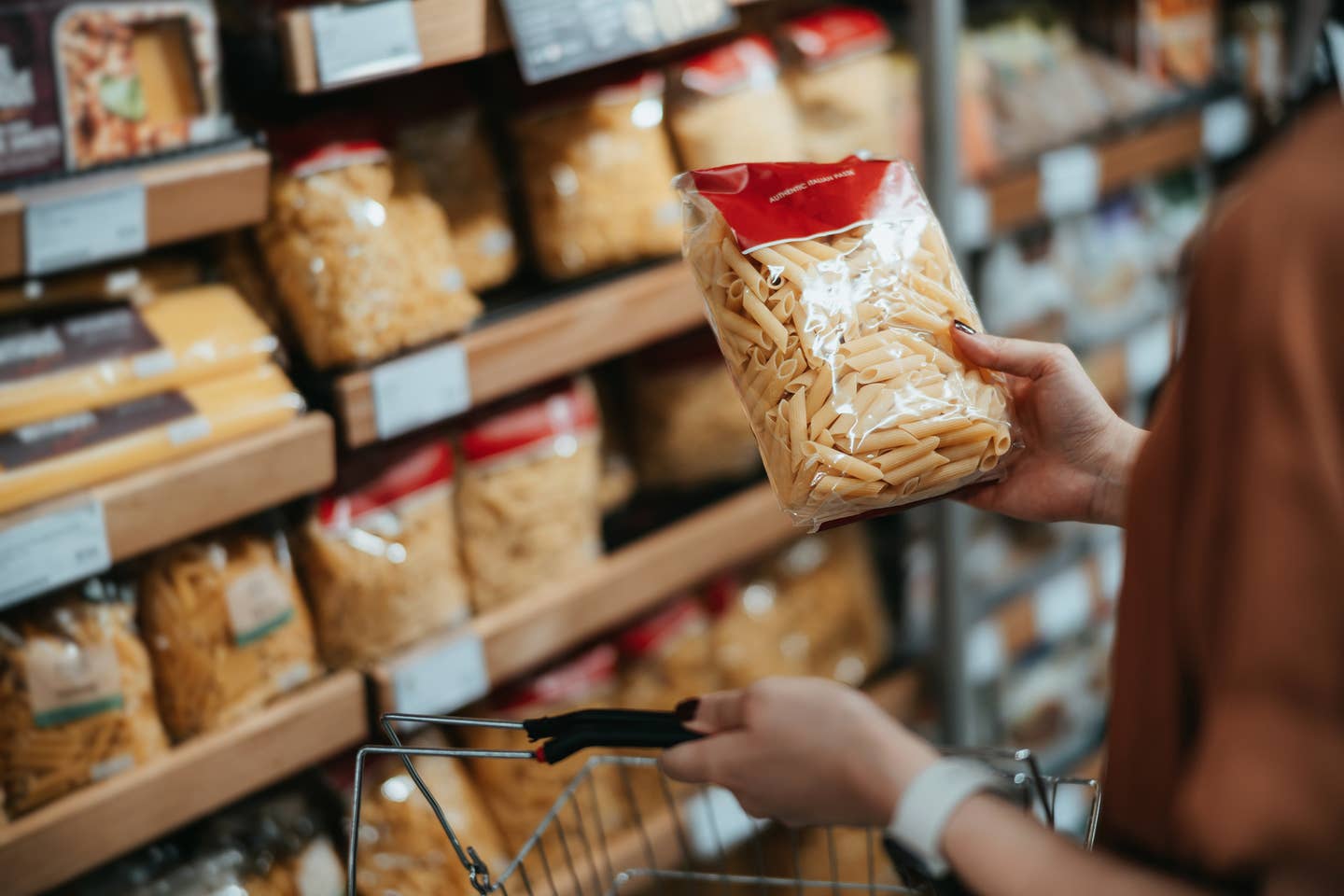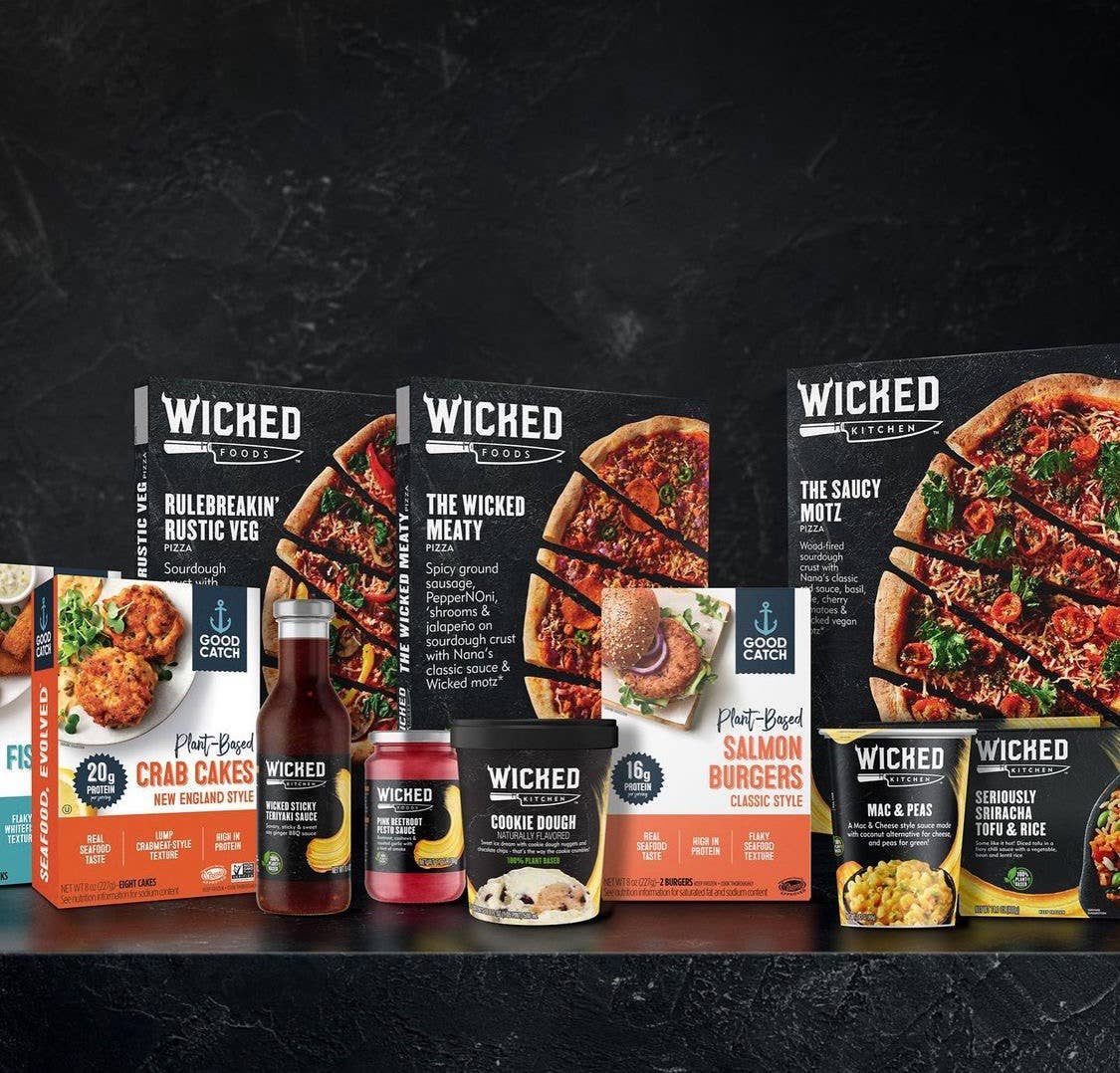
Miyoko’s Creamery Secures $52 Million to Bring Vegan Cheese to Restaurants
Vegan cheese company Miyoko’s Creamery just secured a $52 million investment package during its Series C funding round, showcasing the rapid rise in the vegan dairy market. The company announced that the incoming investment will allow it to hire an additional 10 research and development employees and push its vegan cheese to restaurant distribution.
Founder and CEO Miyoko Schinner hopes that this financial infusion will allow her company to remain at the forefront of the vegan cheese industry, reaching consumers at the final frontier: restaurant tables. It's just one more sign that the vegan dairy industry is expanding at an unprecedented rate as more consumers begin opting for plant-based alternatives to animal-based products.
“We’ve all heard that cheese is the last hurdle that keeps people from going vegan,” Schinner told VegNews. “With this capital, we hope to get our products on the tables of every fine dining restaurant and pizzeria so we can show the world how absolutely delicious vegan cheese can be, and by winning them over, we can edge toward a vegan world.”
The funding package primarily came from the venture capital firm PowerPlant Partners, which aims to promote sustainable companies across the market. Powerplant’s investment history includes Veggie Grill, Beyond Meat, Eat Just, and Ripple, making Miyoko’s Creamery the latest addition to its list of plant-based companies. The company investment package contains $40 million from Powerplant, and $12 million from other investment firms such as Obvious Ventures, Coller Capital, JMK/Cult Capital, and Stray Dog Capital.
Schinner announced that one of the primary food products the company will funnel this money into is a pourable vegan mozzarella. Miyoko’s Creamery announced the new product earlier this year, planing to debut it at an industry show this fall. The vegan mozzarella will be aimed at pizzerias nationwide, aiming to reach out to a consumer base unfamiliar with the potential of vegan cheese.
“I am hoping we will be able to expand our marketing initiatives to create strong awareness among the public not only about our brand but our mission,” Schinner told Vegconomist. “In addition, we would like to build our innovation team to continue developing game-changing products that can help change the dairy landscape from animals to plants.”
Schinner launched Miyoko’s Creamery in 2014 to enter a quickly growing plant-based dairy market. Since its founding, the vegan cheese company has developed several variations of cheese that come in several flavors, including pepper jack and cheddar. The company also went beyond vegan cheese to produce its own line of butter with an oat-based version and a cashew-based version as well as a line of spreadable cheeses.
The vegan cheese market has been one of the fastest-growing plant-based sectors in the market. The Plant-Based Foods Association reported that vegan cheese experienced a 42.5 percent growth between 2019 and 2020, seeing a $270 million growth in sales over last year. Miyoko’s Creamery also reported that its company alone experience a 70 percent growth over 2019, expecting to exceed that number by 2021.
Last week, Schinner decided to enter the dining sector with her newest campaign Wine Country 2.0. With dairy cheese so intertwined with wine culture, Schinner set out to redefine the wine experience to incorporate a vegan element. The campaign carries the same mission as her company, promoting sustainability in food and beverage service. The campaign is working to enlist r local restauranteurs, hoteliers, organizations, wineries, and artisan food developers to redesign the wine country experience.
“Wine Country 2.0 is an entirely new way to enjoy the world’s greatest wine region and leading tourist destination. We will expose visitors and locals alike to phenomenal experiences which demonstrate that caring for the planet and animals while delivering the world’s finest food and wine pairings are not mutually exclusive,” Schinner said. “This convivial, climate-forward collaboration celebrates the diverse, local tastemakers and change-makers who are leading the way in creating a more sustainable and compassionate hospitality experience that will create a blueprint for the culinary industry across the country.
Currently, Miyoko’s Creamery is working out of a 30,000-square-foot facility located in Petaluma, CA that distributes its product to nearly 30,000 retail stores across North America and Australia. Alongside retail distribution, the company is slated to push distribution to the service sector with the recent funding package. The company aims to increase vegan cheese consumption by inspiring people, but first by making healthy food accessible to as many people as possible.
“I believe that our philosophy of using nutritious, plant-based ingredients people understand, such as cashews, oats, legumes, and applying biological processes to them to transform them from familiar formats to new ones never imagined before, inspires people,” Schinner told Vegconomist. “People want to trust the companies that make their food, to know what’s in it, and still get something new and exciting."
The Surprising Reasons these Five Country Singers Went Meat-Free
1. Carrie Underwood Loved Her Family's Farm Animals
Seven-time Grammy Award winner Carrie Underwood has been hailed for her “enormous” vocal range. When it comes to her diet, Underwood’s a fan of breakfast burritos and lots of tofu. She doesn’t shy away from the carbs, either. According to Cheat Sheet, one of her favorite snacks is a toasted English muffin with peanut butter.
2. Blake Shelton Wants to Keep Up With His Older Girlfriend
Singer, songwriter, and “The Voice” coach, Blake Shelton, 43, has been working to stay fit recently with help from his long-time love, Gwen Stefani, who is a vegetarian and told him to get off the meat if he wants to feel fitter and lose some weight. Shelton has been trying to keep up with Stefani's impressive fitness level, according to an interview Stefani gave this fall. The former No Doubt singer and Hollaback girl is a longtime vegetarian, eats a mostly vegan diet, and is super fit-- and at 50, looks younger than her years. A source told Gossipcop, “Gwen’s told him the way to lose it is to stay the hell away from meat and bad carbs.” We're rooting for him!
3. Shania Twain Has the Key to Gorgeous Skin
The best-selling female country music singer in history isn’t buying any expensive steak dinners after a performance. The “Queen of Country Pop” has sold more than 100 million records but says she keeps her meat-free diet simple. She is both vegetarian and eats very little dairy -- though at times has said she does eat eggs.
4. Annette Conlon, Folk Artist with a Passion
Americana singer and songwriter Annette Conlon is also a passionate vegan. She started “The Compassionette Tour,” in an effort to bring compassion, social consciousness, human interaction, and animal issues to a mainstream audience.
5. Johnny Cash, Walked the Vegan Line Late in Life
The Man in Black is synonymous with country music, even nearly two decades after his death (1932-2003), probably in part because of the biopic about his life starring vegan actor Joaquin Phoenix. Ask any die-hard country music fan (or your dad, for that matter) and they will tell you that Johnny Cash was one of the best-selling musicians of all-time. His scores of hits include “I Walk the Line” and "Hurt" "A Boy Named Sue" and dozens of others. Cash himself was believed to have lived meat-free later in life to help combat some health issues. At Johnny Cash’s Kitchen and Saloon in Nashville, you can also load up on the meat-free dishes as the restaurant boasts a fully stacked veggie menu that includes greens, sweet potato mash, and fried okra.
More From The Beet






